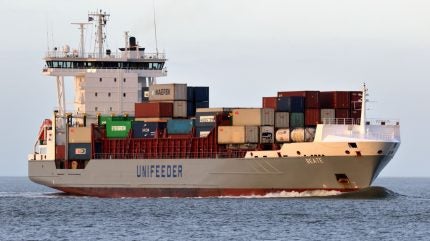
Logistics company Unifeeder and MPC Container Ships have formed a new strategic collaboration focussed on decarbonisation investments to drive both companies’ emissions targets.
The joint investments will focus on Energy Efficiency Technology (EET) retrofits to be shared between the two charterers, with the subsequent cost savings also divided up equally.
Christian Hoepfner, Unifeeder’s director of decarbonisation, said: “This collaboration not only aligns with our goals for decarbonization but also sets a precedent for the industry to overcome traditional split incentive barriers.
“By jointly investing in a bundle of EETs and sharing the resulting benefits, we are paving the way for a more sustainable future in maritime transport.”
Investments will include the installation of variable frequency drives which can adjust the output of high consumption parts on vessels as and when they’re needed, which, along with lubeoil filtration systems, could reduce emissions by 10%.
Philipp Niesing, managing director at MPC, said: “Investments in our existing fleet are a cornerstone of our USD 400 million fleet renewal investment programme as they will immediately contribute to reducing emissions.
“By overcoming the traditional split incentive structure, we hope to drive positive change in the industry, and we are proud to partner with Unifeeder in this undertaking.”
The innovative partnership continues Unifeeder’s investments into sustainability technologies as it targets a 47% emissions reduction by 2030, following the DP World owned company’s orders for methanol-powered vessels.



